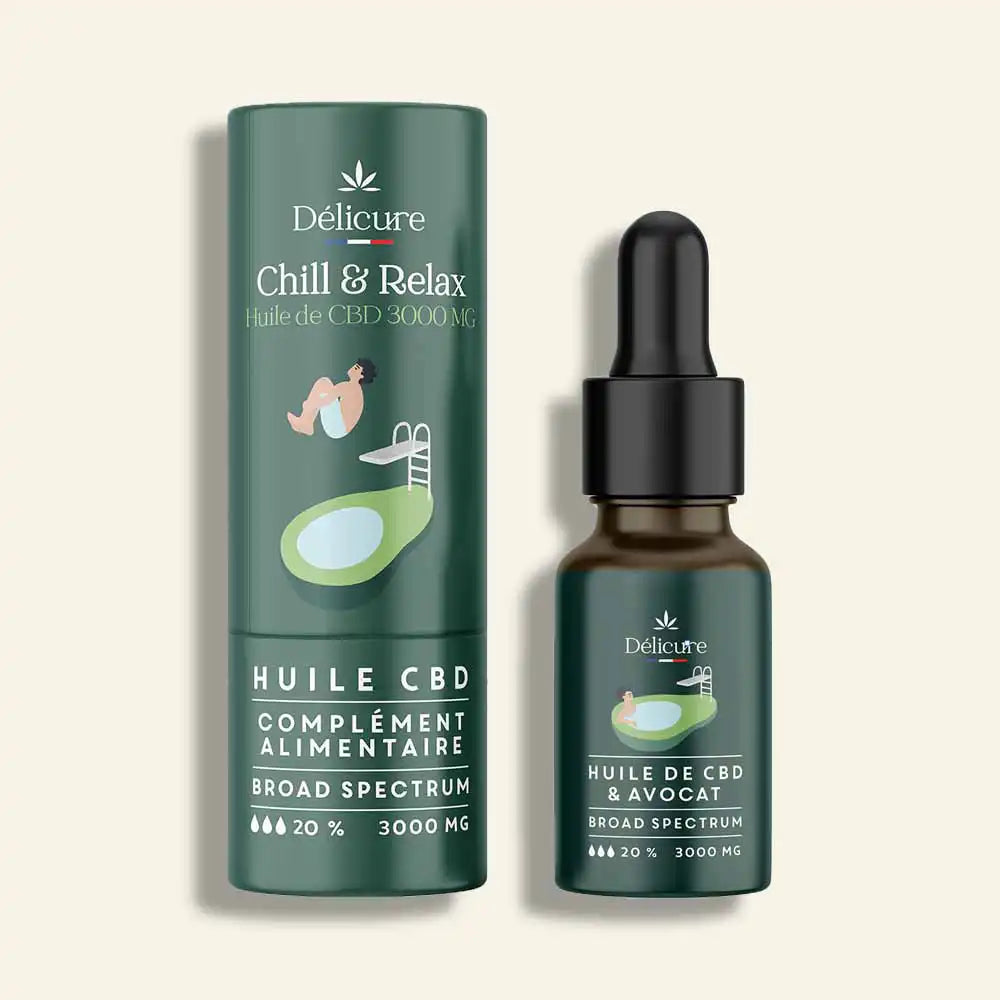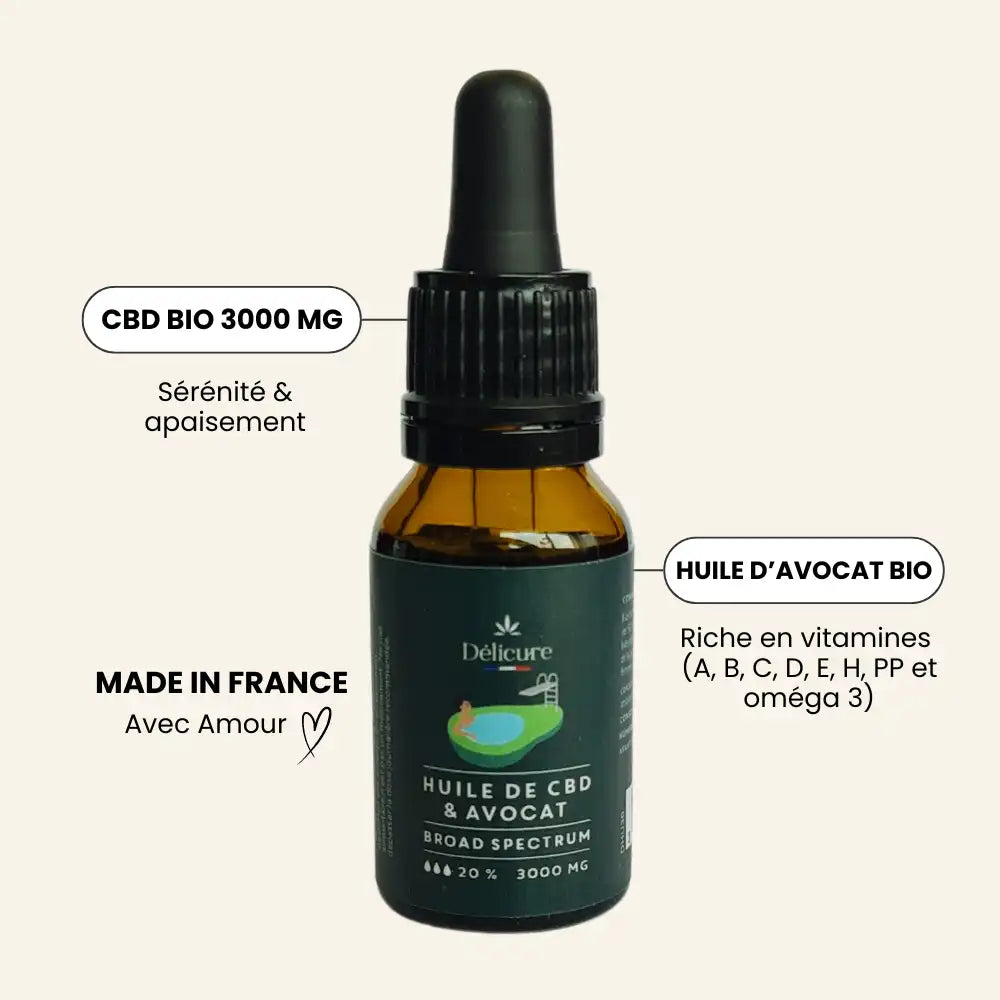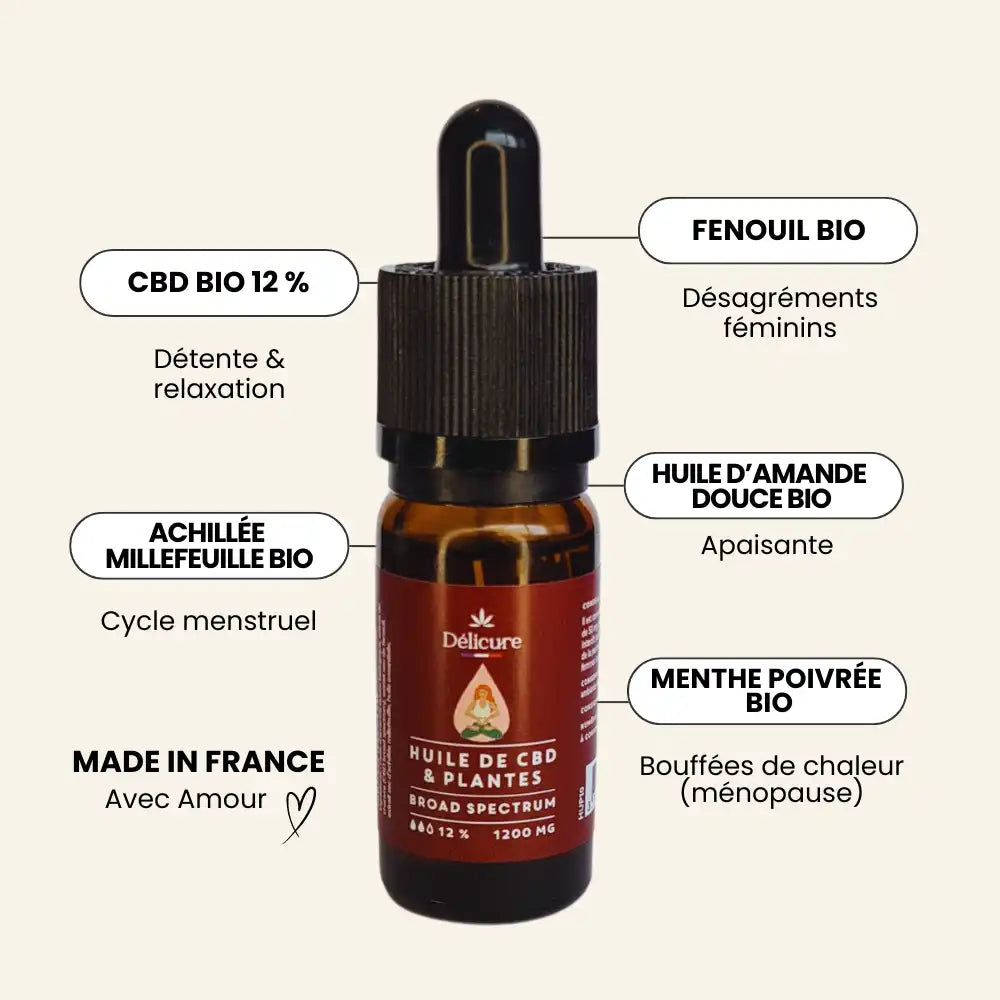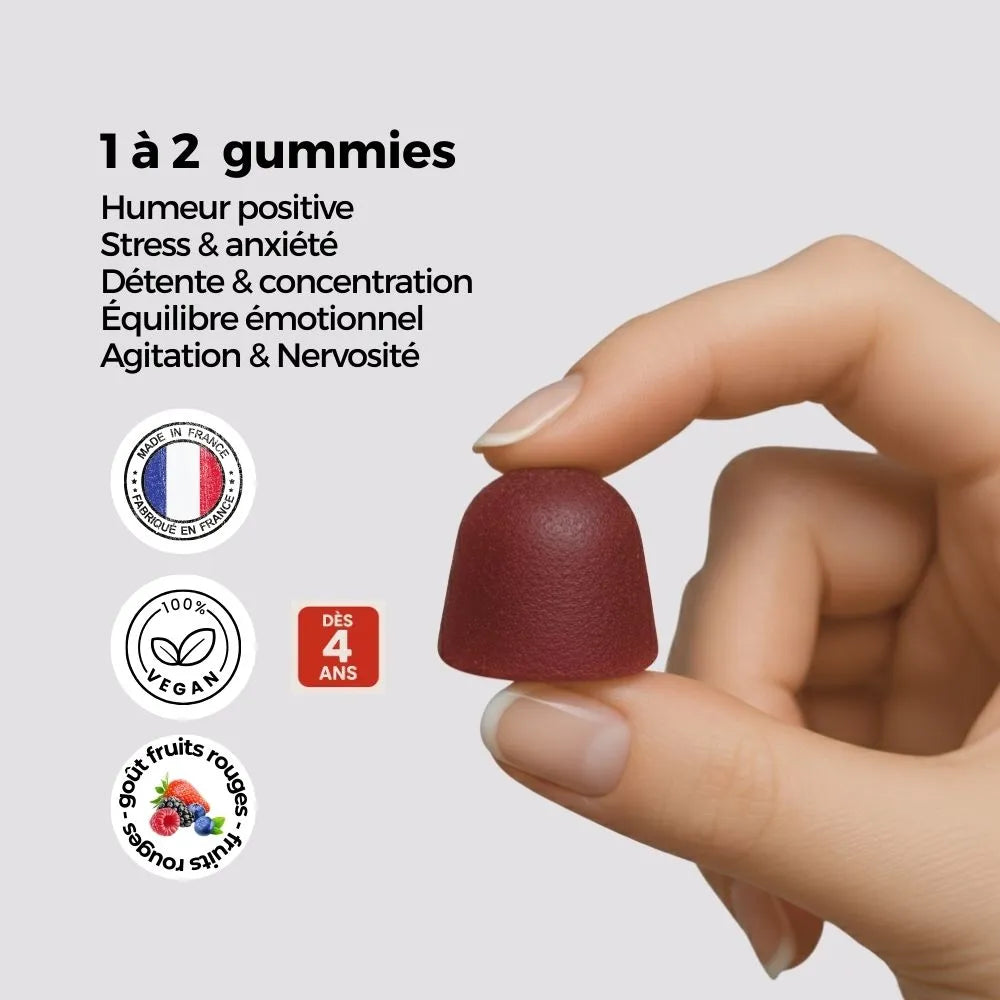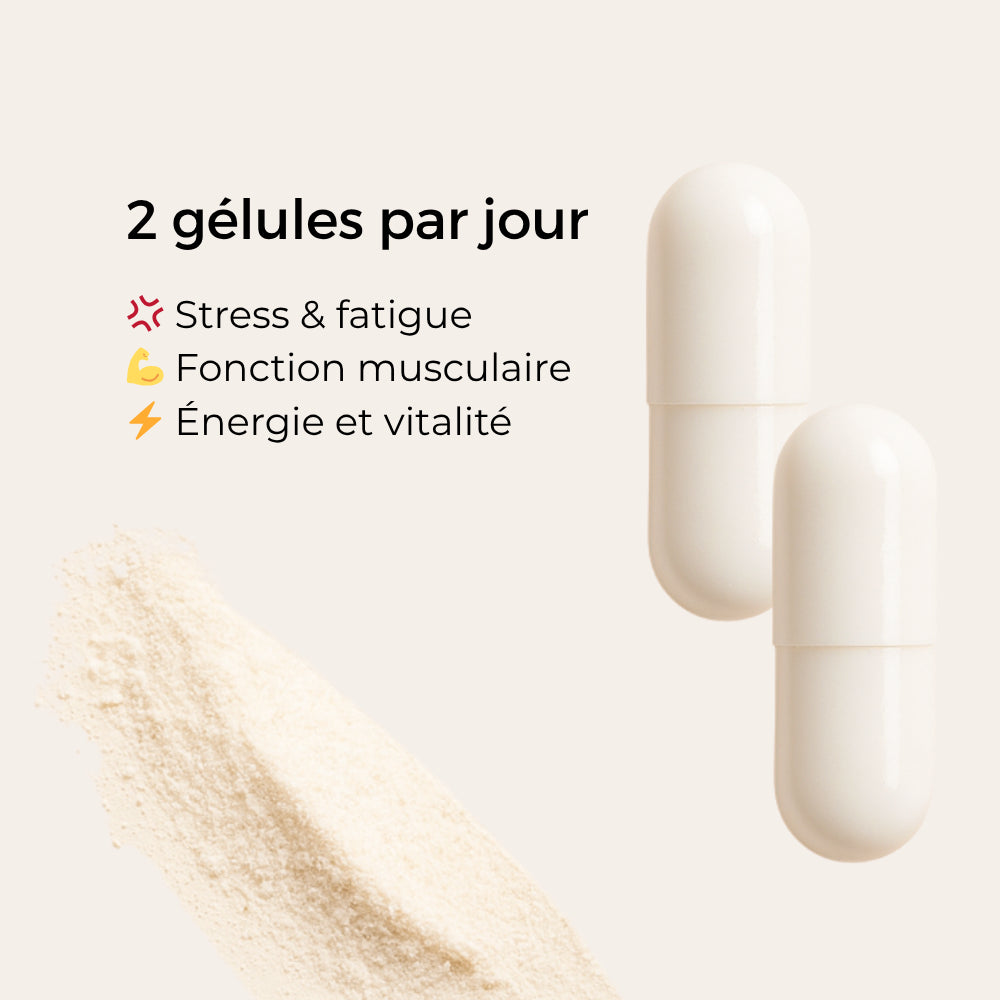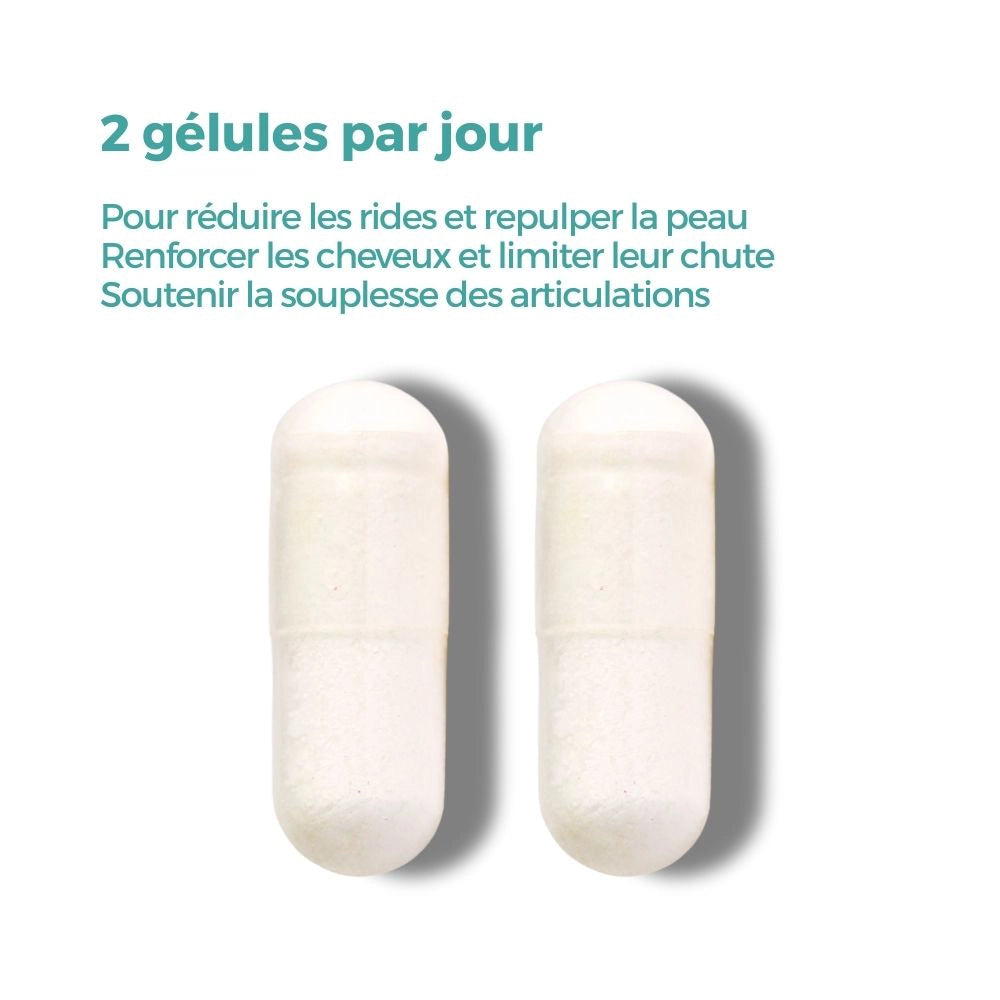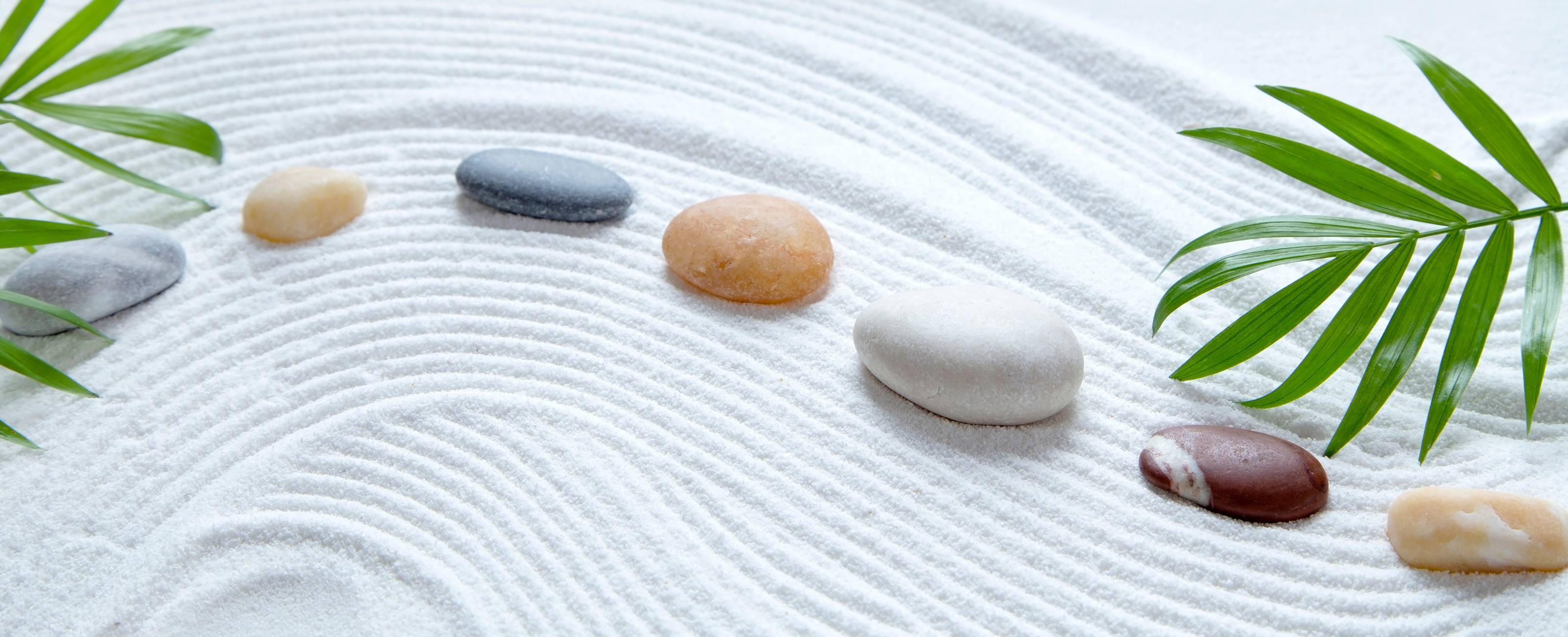
Complete guide to naturally reducing your stress
In this article, we'll take an in-depth look at stress, a phenomenon that, when chronic, can seriously impact our health. You'll discover the foundations of this complex phenomenon before exploring various relaxation methods that will bring zen and calm to your daily life. We'll discuss the importance of a healthy diet, rich in beneficial plants and oils, and regular sleep in stress management. The beneficial role of exercise will also be highlighted, as will the effective use of a to-do list to organize your daily life without anxiety. Finally, we'll introduce you to the world of dietary supplements for a natural approach to stress, focusing on plants and oils with numerous benefits.
1/ Understanding stress
Understanding stress is the first essential step in learning how to manage it effectively. It's our body's natural reaction to situations perceived as threatening or demanding. It's a defense mechanism that prepares us to act quickly in the event of danger, whether real or simply imagined. However, when this phenomenon becomes persistent, it can have harmful consequences on our physical and mental health. Symptoms of stress can vary from person to person but generally include sleep disturbances, increased muscle tension, a feeling of constant anxiety or irritability, and difficulty concentrating, highlighting the importance of breathing tips and exercises to alleviate these symptoms.
We live in a world where there are many causes of stress: professional pressure, financial difficulties, family conflicts, and even health fears. These external factors can lead to high levels of stress if we don't have the necessary tools to cope with them. Plants and oils can offer calming benefits in this context, helping to maintain a Zen state amidst the hustle and bustle of our daily lives.
It is therefore essential to learn to recognize the symptoms of stress and the triggers in order to be able to implement effective strategies to reduce it naturally, by integrating breathing exercises and advice for a Zen lifestyle.

2/ Relaxation methods
Having understood the mechanisms of stress, we will now explore relaxation techniques to alleviate it naturally, emphasizing the importance of breathing and plants for a zen and peaceful daily life.
Meditation is a highly effective strategy for reducing stress. It offers a way to focus on the present moment and calm any negative thoughts that may arise, contributing to a Zen-like state. To begin, simply sit comfortably, close your eyes, and pay attention to your breathing for a few moments each day—a simple yet powerful exercise for combating anxiety.
Yoga can also be a great way to release built-up tension, combining body exercises and breathing techniques to provide a sense of tranquility and mental balance, essential for Zen health.
Additionally, regular exercise helps release endorphins, the feel-good hormones that help combat stress. A daily walk can make a significant difference, providing a moment of respite and respite from our busy lives.
Other methods such as aromatherapy or the use of essential oils can also promote an environment conducive to relaxation, as plants are known for their benefits on our mental and physical health.
It's worth mentioning that these techniques require consistent practice to be truly beneficial. Each person must identify the one that best suits them based on their individual preferences and personal constraints, incorporating tips and exercises tailored to their daily lives.
4/ Maintain regular sleep
Have you ever considered the importance of regular sleep in managing stress? Maintaining a consistent rest schedule is an essential element in naturally reducing stress, offering invaluable benefits to our health. Why? Because our bodies and minds require rest to function properly and cope with daily challenges.
It's important to understand that sleep isn't just about the amount of sleep you get, it's also about the quality. Disrupted or insufficient sleep can lead to increased stress levels, while deep, restorative sleep helps strengthen our defenses against stress, contributing to a more peaceful state.
Here are some recommendations for maintaining regular sleep:
- Establish a routine : Try to go to bed and get up at the same time every day, including on your days off, for a zen daily rhythm.
- Pay attention to your environment : make sure your bedroom is peaceful, dark, and at a comfortable temperature, promoting a peaceful and restful sleep.
- Reduce screen time before bed: Blue light from screens can disrupt your body clock, affecting your sleep health.
- Avoid caffeine at the end of the day: it can hinder your ability to fall asleep, disrupting your peaceful daily routine.

5/ Sport to escape
Regular exercise is a great way to naturally reduce stress, offering significant health benefits. Exercise releases endorphins, often referred to as "happy hormones," which create a sense of well-being and euphoria, essential for a Zen-like state in our daily lives. You don't need to engage in extreme activities to reap these positive effects. A simple daily walk can be enough, providing an exercise in breathing and connecting with nature.
When you engage in physical activity, your body focuses on the effort you need to make rather than on potential sources of stress. This momentary distraction allows your mind to relax and provides a beneficial rest for your nervous system , helping to alleviate symptoms of stress and anxiety.
In addition to releasing endorphins, exercise also helps improve sleep quality, promoting deeper, more restful sleep. Adequate rest plays a key role in stress management, helping maintain a calm and balanced state of health in our daily lives.
It's crucial to choose a discipline you enjoy, as it should be viewed as a pleasure rather than an additional obligation. Whether it's yoga, swimming, or even dancing, each discipline has its own benefits when it comes to relieving stress and promoting a Zen state.
Introducing exercise into your daily routine is an effective strategy for managing stress without resorting to medication, while fully benefiting from the health benefits of physical activity.
6/ Set up an effective to-do list
Managing your stress requires careful organization of your daily activities. The ideal tool: the to-do list, which structures your day and reduces anxiety, bringing a sense of control and calm to your daily life.
The first step is to create a concise and achievable to-do list. It's crucial to avoid piling up tasks to avoid feeling overwhelmed. Prioritizing quality over quantity is recommended: completing a few tasks perfectly rather than stressing over several. By following this advice, you'll maintain a calm state and balanced mental health.
Next, prioritizing tasks according to their importance and urgency helps avoid the trap of multitasking, which often generates tension. This advice will allow you to manage your stress symptoms more effectively.
It's helpful to break large projects into smaller, more manageable tasks. This encourages smooth progress and provides a sense of accomplishment each time a subtask is checked off as complete, reducing symptoms of anxiety and chronic stress.
An effective to-do list can be a valuable ally for managing stress naturally. It provides a clear overview of the day's goals, freeing the mind from unnecessary concerns that often generate anxiety and nervous tension, and promoting a calm and organized daily life.
7/ The discovery of food supplements
Stress, especially when it becomes chronic, is a modern scourge that can be combated through a variety of means, including the use of dietary supplements. These natural alternatives represent a healthy alternative to conventional medications, which are often linked to unwanted side effects, offering health benefits without the associated problems.
Among the most effective plants for reducing stress is Rhodiola Rosea. This adaptogenic plant supports the body in stressful situations by stabilizing the nervous and endocrine systems. It facilitates better concentration and fights fatigue, offering significant benefits for those seeking to maintain a calm daily life.
Another beneficial nutrient is magnesium. This vital element plays a key role in muscle relaxation and nerve signal transmission. A magnesium deficiency can lead to anxiety and stress, exacerbating symptoms and disorders related to a stressful lifestyle. Incorporating this element into your diet can help maintain balanced, zen health. Magnesium bisglycinate is the preferred form because it is much more easily absorbed and gentle on the stomach.
Ashwagandha is also recommended for its powerful anti-stress effects. This Indian herb regulates stress hormones like cortisol, thereby promoting a more peaceful and relaxed state of mind. Its use can be a valuable resource for those looking to alleviate anxiety and stress symptoms in their daily lives.
CBD (from hemp) is a molecule that is increasingly used for relaxation. It is found in the form of CBD oil , capsules, or CBD candies and gummies . CBD is a natural product consumed in France by millions of people, and products containing cannabidiol, such as CBD gummies, have excellent consumer reviews.
It is too often overlooked, but a lack of vitamins can also facilitate a state of stress; in fact, vitamins participate in numerous mechanisms linked to stress management.
It's worth mentioning, however, that these dietary supplements should be used with care and are not a substitute for a healthy lifestyle, including a balanced diet, adequate sleep, and frequent physical activity. The herbs and vitamins used in these supplements offer numerous health benefits, but they should be incorporated thoughtfully into your daily routine.
Consulting a medical professional before use is strongly recommended to avoid any interactions with existing treatments or medical conditions. Taking this advice into account can help you avoid potential problems and maximize the health benefits of supplements.
In summary, stress, although a natural response of the body to certain situations, can become problematic when it is chronic. Fortunately, there are many natural strategies and tips for managing it, from meditation to breathing exercises, a healthy and balanced diet, herbal and vitamin supplements, beneficial oils, regular sleep, regular exercise, organizing an effective to-do list, and the judicious use of natural food supplements. By integrating these practices into your daily life, you can improve your health and live a more zen life, thus reducing stress-related symptoms and disorders. The foods we eat can also have a real impact on our stress levels because some foods contain natural active ingredients that are very effective for relaxation. Anti-stress foods will be the subject of another blog article because they deserve our full attention.











